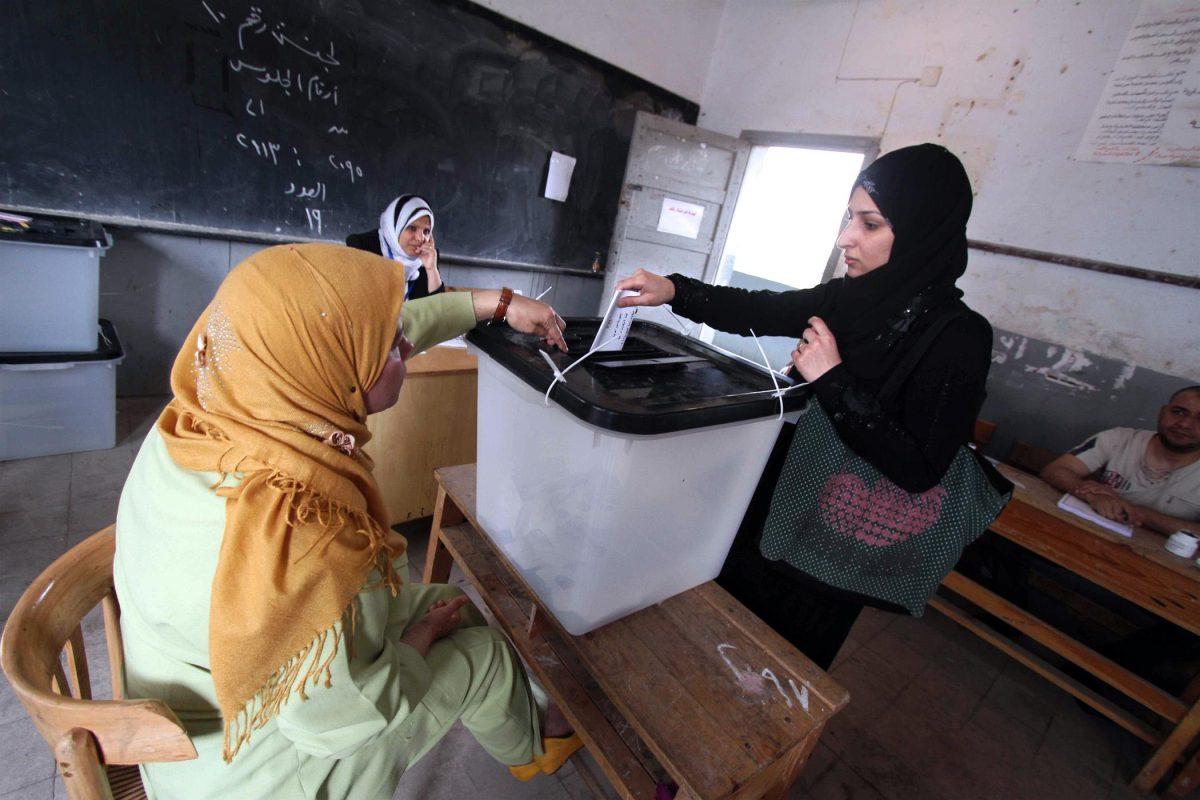Egypt is in the midst of holding its first free election after 30 years under an oppressive regime, led by Hosni Mubarak.
Akram Khater , director of the N.C. State Middle East studies program, said this election has the potential to change the face of the Middle East.
“The example of fair and free elections is an incredible new step and sets a tone, it applies pressure on other countries that don’t have elections or have rigged ones,” Khater said.
Under the authoritarian rule of Mubarak, Egypt’s elections suppressed the voice of the Egyptian people, automatically re-electing the leader many feared. It was not until Jan. 25, 2011 that the people spoke up with protests that were heard worldwide.
During the first day of upheaval of what became the Arab Spring, thousands of people who showed up to demand Mubarak’s regime be removed flooded Tahrir Square. Just one week later, millions christened the location as “Liberation Square,” according to Khater .
“Those incredibly courageous men and women, elderly and children, people from all walks of life, who risked their own lives-it is they who opened up the possibility of the free elections we are seeing now,” Khater said.
The elections began on May 23, with two candidates in the running. Mohammed Morsi and Ahmed Shafiq share only one quality: They are running for president. Aside from that, the two candidates could not be more different. Morsi is running under the Muslim Brotherhood, an organization standing on the platform of socially conservative values and economic freedom. Ahmed Shafiq was Prime Minister of Egypt under Mubarak’s regime. Khater said those who vote for Shafiq will vote for security and safety in the country.
“The candidates reflect two different trends amongst Egyptians,” Khater said. “We mustn’t be too quick to discount that whoever wins will indeed shape the direction of the country itself.”
Khater said there is no doubt these elections will change Egypt’s history as a whole.
“This is the first time that Egyptians can freely go to the polls and vote for the person they think will be the best leader,” Khater said.
While these elections are free, some don’t agree they are fair.
Daniel Zaki , senior in engineering, said local Arab news is depicting a different story of the elections.
“They’ve released a bunch of people from prison to go vote in the elections just because they are Muslim and will vote for Shafiq ,” Zaki said. “Technically it’s free, but it’s still a very biased election.”
Zaki , whose family is Egyptian, is not pleased with either candidate.
“They’re both pretty different, but I don’t like either,” Zaki said. “It is what it is. There’s nothing you can really do.”
In Zaki’s opinion, if Morsi wins, the Muslim Brotherhood is going to “turn the country upside-down.” Though he feels Morsi is still the lesser of “two evils.”
Salma Ibrahim, senior in mathematics, said Shafiq shouldn’t be a “scary” candidate just because of his association with Mubarak’s regime.
“I think he’s learned a lesson from what went wrong with Mubarak,” Ibrahim said.
She isn’t the only one. Karim Ghanem , senior in biological sciences, is voting for Shafiq .
“I have dual citizenship and I’m voting for Shafiq ,” Ghanem said. “Either way, both candidates are pretty good, though. I’m glad to see these elections come from the revolution and all the people who died.”
Despite opinions on the candidates themselves, the fact remains: The 2012 presidential elections in Egypt are changing the history of the Middle East.
“Each country is individual, so you can’t generalize and say how long the Middle East will take to change as a whole,” Khater said. “Change depends upon the tupe of government and resources available to that country’s government, as well as the education of the population. “
Khater said countries like Saudi Arabia will be able to prolong a revolution, because of the wealth and lifestyle its government is able to provide. Syria, however, is less likely to take its time because they are already demanding the removal of the regime there.
Egypt’s free election is significant to the country and its citizens, but not everyone has hope.
“I don’t think Egypt will ever truly be free,” Zaki said. “It hasn’t been democratic in a long time and I don’t think it ever will be.”








